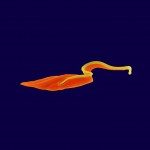Présentation
The cilium is an important organelle for motility and cellular signaling found on most mammalian cells and on single celled organisms such as the parasite Trypanosoma brucei. Cilia formation requires the process of Intraflagellar Transport (IFT) to move ciliary building blocks and signaling components into the cilium. IFT relies on a large multi-subunit IFT-complex and on the molecular motors kinesin II (anterograde transport) and dynein 2 (retrograde transport)1. How ciliary components move from their sites of synthesis in the cell body to the base of the cilium is currently poorly understood. Also, the mechanisms for switching between anterograde and retrograde IFT at the ciliary tip are not well characterized although the IFT172 protein has been implicated 2. Mutations in genes encoding IFT proteins are the cause of several genetic disorders collectively known as ciliopathies and very recently, mutations in IFT172 were uncovered as a cause of Jeune and Mainzer-Saldino syndromes in a cohort of ciliopathy patients 3. IFT172 is the largest subunit of the IFT complex and is essential for ciliogenesis in a wide range of organisms 2,4-6 but due to its large size it has so far not been possible to study the recombinant protein. In the project proposed here, we aim to unravel important aspects of ciliogenesis by IFT172 as well as the pathologies resulting from patient mutations in the IFT172 gene. We will employ a set of complementary methods from biochemistry, structural biology and cell biology to address the roles of IFT172 in different steps of ciliogenesis and the properties of mutant forms causing disease. Encouraging preliminary data produced in our labs demonstrate that IFT172 can be recombinantly expressed and purified to homogeneity and that IFT172 co-purifies with lipids as large oligomeric structures as visualized by EM. Additionally, we have produced a monoclonal antibody against IFT172 to monitor the sub-cellular localization patterns and set up inducible RNAi knockdown experiments using Trypanosoma brucei as a model system. We are thus well positioned to study the roles of IFT172 in the poorly studied steps of ciliogenesis such as Golgi to cilium transport of vesicles and IFT turnaround at the ciliary tip. Furthermore, in addition to the recently published mutations, we have access to unpublished IFT172 patient data through our collaborator and will test the impact of such mutations on the recombinant protein in vitro as well as on IFT172 function in vivo using T. brucei. The results from such an approach will greatly advance our understanding of the mechanisms of ciliogenesis as well as of the pathologies caused by IFT172 mutations. This project is a collaboration with the group of Esben Lorentzen (Max Planck Institute, Munich) and is funded by an ANR-DFG grant.


